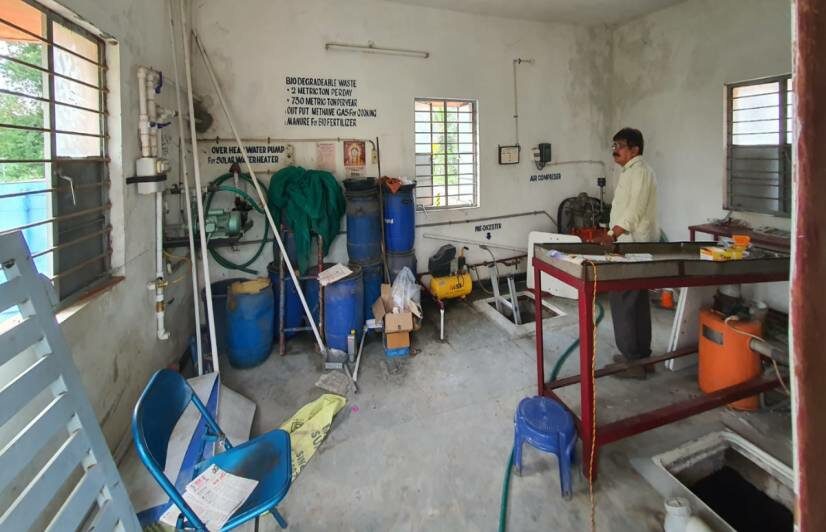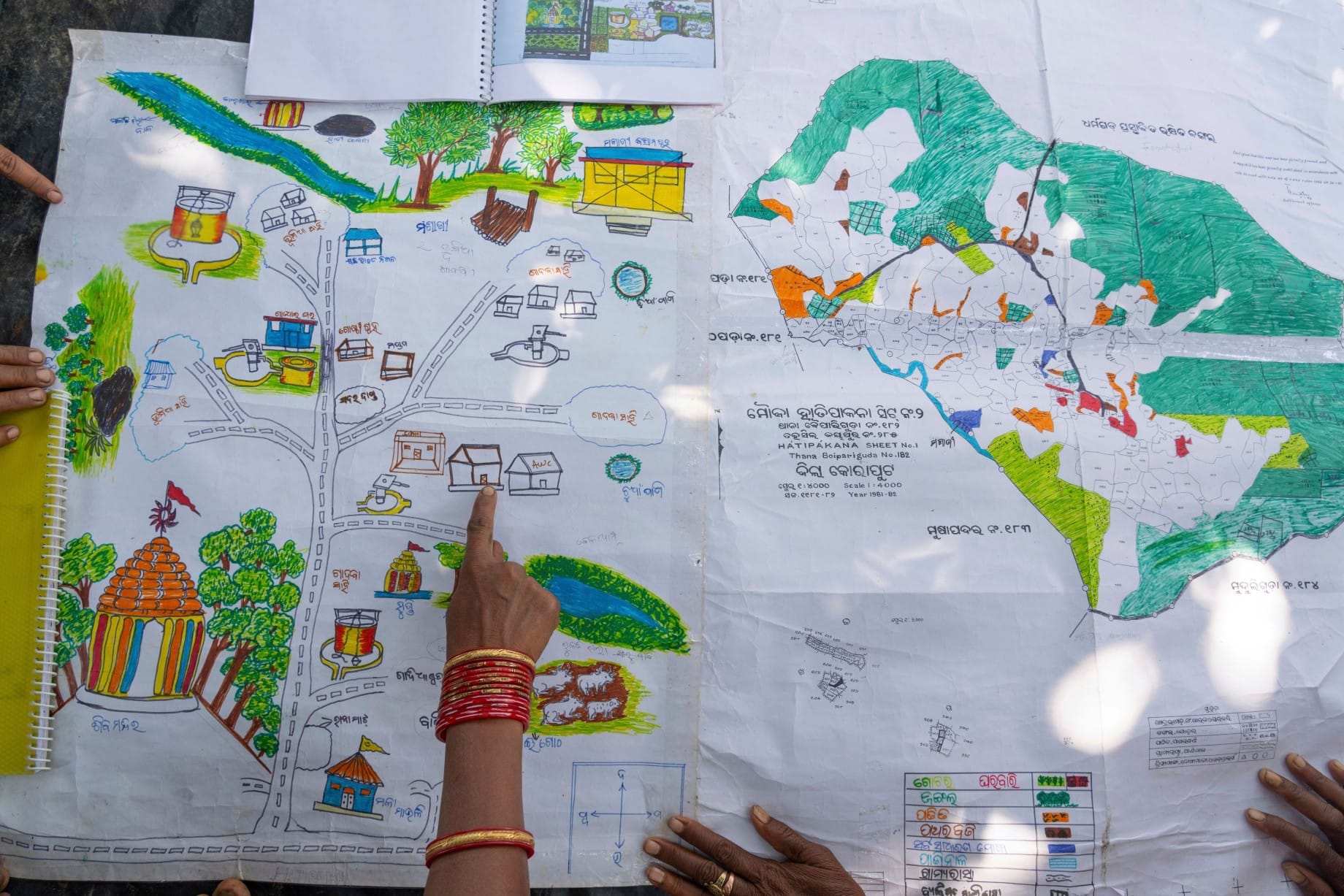By Gowthami Subramaniam
Saraswathi (56) of Kurudampalayam in Coimbatore district had never used the community kitchen when it was operational in 2016. Run by the biogas technology of the Bhabha Atomic Research Centre (BARC), the project had stopped functioning in a year’s time due to lack of patronage and issues in maintenance.
“Only my husband and I live here. All our children are married. An LPG cylinder would last over four months. Instead of carrying every ingredient to cook meals from my house to the community kitchen, I preferred to purchase firewood for a few rupees. Anyway, it cost much less than an LPG cylinder,” she said.
Though the plant was revived last month, no decision has been reached on how to utilise the biogas. Even if the community kitchen is reopened, Saraswathi said she would depend on it only when she ran out of LPG.
Based on the BARC’s Nisargruna plant, the community kitchen was equipped with 21 stoves to cook food free of cost. “The District Rural Development Agency (DRDA) implemented the project in our panchayat with BARC funds worth Rs 30 lakh. Additionally, the district collector donated Rs 10 lakh for building the kitchen. The BARC also did Nisargruna technology transfer to make the project a reality,” Kurudampalayam panchayat president D Ravi explained.
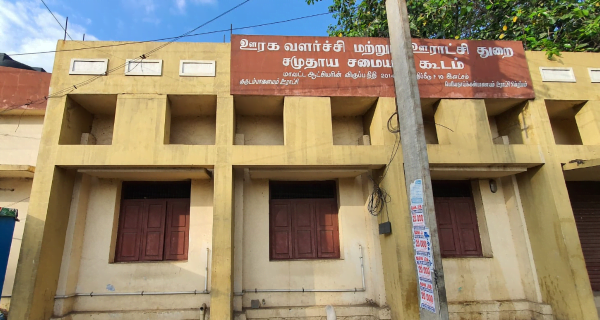
Every day, the plant could process two tonnes of organic waste, but only a few families utilised the biogas produced. Goat herder R Kaliammal (67), one of the beneficiaries, has a big family. “I now spend nearly two hours collecting firewood from the forest. When it rains, I have to sun-dry it too. In such a situation, I have to resort to an LPG cylinder,” she said.
Reminiscing how things were easy when the community kitchen was functional, Kaliammal said, “My daughter-in-law and I would take the required vegetables, rice and pulses from our home and cook every day at the community kitchen. It saved us the time and effort required for collecting firewood,” said Kaliammal.
Thulasimani (45), who lived close to the community kitchen, accessed it regularly. “The street is long and extends further to the north. For those located at a distance, carrying all the ingredients and vessels from their homes seemed unfeasible. Eventually, they stopped using the facility.”
However, the rising LPG price is a concern for Thulasimani’s family of five. “An LPG cylinder costs Rs 1,110, and it does not even last for 45 days!”
The panchayat stalemate
A promising endeavour to make a fortune out of solid wastes, the community kitchen project failed as the few women who cooked there did so only once a day. “The young ladies felt shy, and only older women accessed it regularly,” mentioned Ravi, who headed a 20-member team that supervised all tasks, from waste segregation to plant operation.
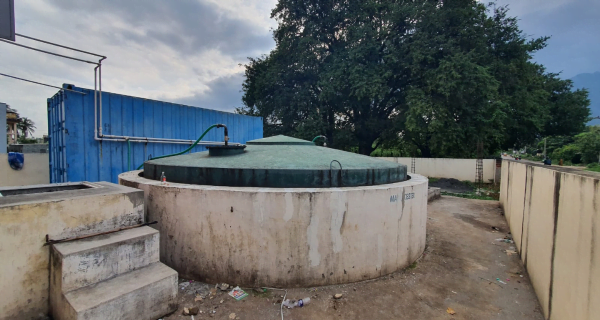
Taking note of the low patronage, the panchayat then decided to shift the kitchen to a smaller area next to the biogas plant and began construction for the same. The existing building was repurposed into a community hall in 2016.
Pointing to the raised pillars at the site where the new kitchen was proposed, Ravi said they could not complete the construction as “Our term got over and the panchayat elections were paused for the next three years.”
With the panchayat non-functional from 2016 to 2019, waste segregation also came to a halt. “We used to collect Rs 30 per house under the Swachh Bharat Mission. Besides operating the biogas plant, we made extra money by selling segregated and recycled wastes. This paid the salaries of sanitation and maintenance workers at the plant,” informed Ravi, who got another term as panchayat president following the 2019 polls.
Also read: Aquaculture Farms Threaten Livelihoods Of Small-scale Fisherwomen In Tamil Nadu
Additionally, the panchayat had received corporate social responsibility (CSR) funds for waste segregation and plant operation. Thus, 45 sanitation workers had been engaged to collect segregated waste from 13,000 families in 11 wards, with each worker handling 150 households.
Besides generating employment, the activity had kept the panchayat spic and span. Notably, Kurudampalayam is a recipient of the Panchayat Sashasktikaran Puraskar in 2014 and Tamil Nadu government’s Clean Village Campaign award in 2016.
After the panchayat went defunct, improper municipal waste segregation became a vexing issue, according to biogas plant operator Geetha. “Actually, the raw materials should not even have paper pieces in them.”
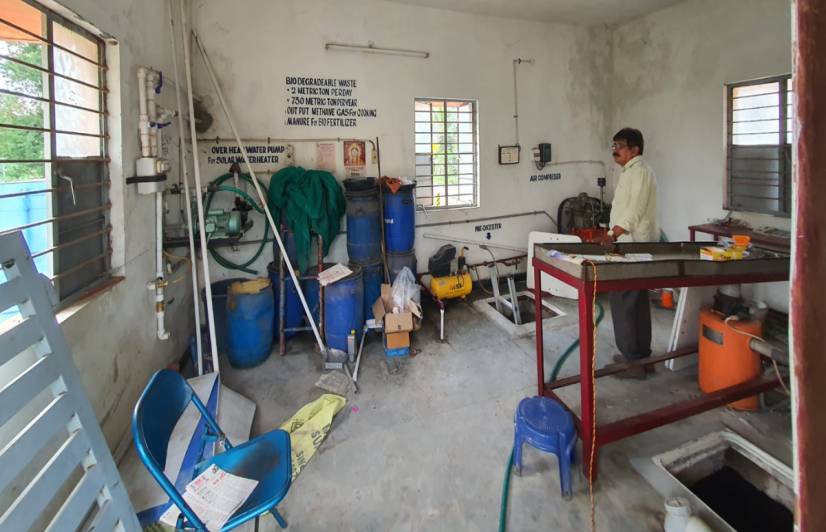
A DRDA official on condition of anonymity confirmed that the plant workers did not receive salaries during the special officer (block development officer) period, which forced disgruntled workers to leave their jobs. Soon, it became a favourite hangout spot for men to consume alcohol.
On the operational issues during the special officer period, Nandhakumar, the general secretary of Thannatchi, an NGO that supports the panchayat in several projects, said, “All of a sudden, a block development officer (BDO) was burdened with the humongous work of many villages, which was previously carried out by several panchayat presidents, vice-presidents and ward members.”
Despite repeated attempts, Kurudampalayam BDO refused to comment on the issues related to biogas plant maintenance.
Knocking on all doors for revenue
In a bid to maximise biogas utilisation and revenue generation, Kurudampalayam panchayat had tried to lease out the community kitchen to a women’s canteen or self-help group. It had also explored the idea of selling biogas to bakeries and restaurants, but all those efforts had failed to gather momentum.
“Snacks are prepared daily on high flame. But the biogas pressure was simply not sufficient for us. Hence, we switched back to commercial LPG,” said a bakery owner on condition of anonymity. He had accessed the free biogas for a while.
To promote waste segregation, the panchayat had first offered two free dustbins of Rs 20 each to every household. However, poor response forced it to train all sanitation workers to do the segregation before the waste entered the corporation bins.
“We also collected plastic waste separately for Rs 10 per kg from houses and sold it to recycling plants… The biogas slurry was also sold to farmers as an organic fertiliser at a subsidy rate of Rs 10 per kg,” said Ravi.
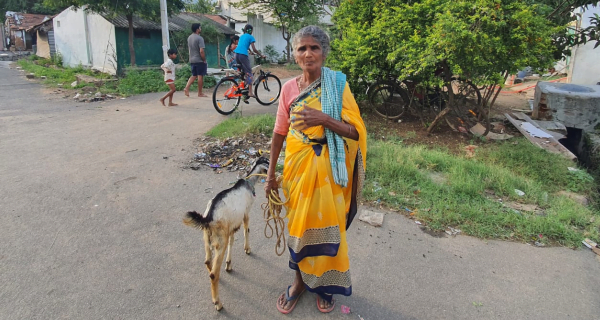
Though all the measures had generated revenue, it was meagre when compared to the actual needs of the panchayat. “We needed approximately Rs 5 lakh per month to segregate wastes and run the biogas plant. The State government provided only Rs 3,600 per sanitation worker on 27 routes, whereas the actual salary paid was Rs 6,000 on 45 routes,” said Ravi, citing the deficit.
Not just that, the panchayat had been segregating waste from only 11 out of the 15 wards due to fund crunch. “If we were to input the segregated wastes from the entire panchayat to the plant, we would have added another 25 routes with 25 more sanitation workers and supervisors,” he said.
Explaining how a top-down approach could render biogas projects defunct after the initial years, Nandhakumar said the government should reflect on the outcome of such schemes or look into the operational hindrances to find a long-term sustainable solution.
Also read: UP Women Entrepreneurs Kickstart Rural Economy Post-pandemic
Admitting that there was a lack of follow-up of old schemes when several projects were being pushed, a State government official, on condition of anonymity, said, “All schemes cover the hard costs of implementation, whereas most schemes only allot little to no funds for maintenance, thus leading to failure of projects.”
Expert view
Compressed biogas was an idea that Tamilnadu Energy Development Agency (TEDA) general manager in-charge Karamallayan suggested to make individual households adopt the project. “But it needs a massive decentralised plant to bottle biogas, which will incur a huge cost,” he said.
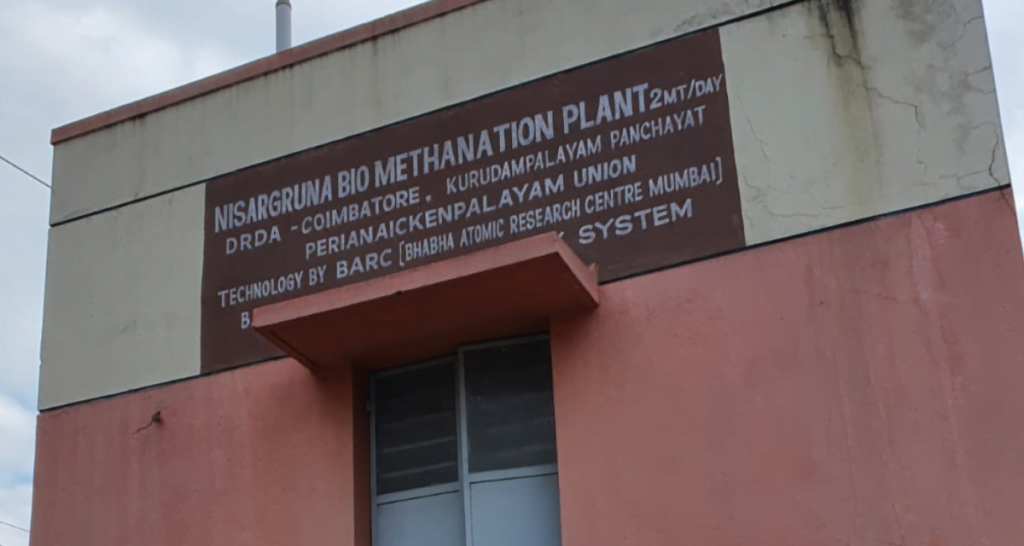
Chythenyan, a research associate at the Centre for Financial Accountability, suggested a different model to maximise biogas utilisation. “A community-owned enterprise fuelled by community-based biogas and benefit-sharing with the public are important aspects. Kurudampalayam community kitchen should be turned into a community canteen that offers food at low rates to the public.”
According to the TEDA website, 189 community and toilet-linked biogas plants have been built in Tamil Nadu, but most of them are defunct. “A lot of research has been done on why community biogas plants are not surviving. Maintenance is one major issue,” Karamallayan said.
Though TEDA is not operating biogas projects presently, he said the agency is ready to revive the defunct community plants if the government gives its approval.
Beginning afresh
Despite the huge expenditure involved in the erstwhile biogas plant, Ravi is gung-ho about reviving production. “Though we thought a community kitchen would be a place for women to share knowledge along with food, it failed as they preferred privacy. Now we are searching for an effective solution to fully utilise the biogas, besides hoping for CSR funds and NGO support.”
Also read: ‘Is It Unfeminist To Enjoy Cooking?’: Gender Roles And Self Expression In The Kitchen
Giving an interesting insight into how the government has shifted away from community-based toilets to individual ones to instill a sense of ownership, Chythenyan said, “Community kitchen model might not work in a progressive State like Tamil Nadu as more and more people lead private lives.”
Even as women like Thulasimani felt a community hall was more important as it served the entire village free, Ravi said, “We will keep trying and learn, no matter how many operational issues we encounter. Success is not very far.”
Gowthami Subramaniam is a Coimbatore-based freelance journalist and a member of 101Reporters, a pan-India network of grassroots reporters. This story is supported by Internews’ Earth Journalism Network.
About the author(s)
101Reporters is a pan-India network of grassroots reporters that brings out unheard stories from the hinterland.
